A typical clinical case has just been recorded at the Central Hospital for Tropical Diseases, that is Mr. NTD, 64 years old (in Hanoi ) was hospitalized in a state of severe gastrointestinal bleeding, with a ruptured vein spurting blood in the stomach.
The cause originates from gastric and colon ulcers that progress rapidly and unpredictably.
The patient was transferred with black stools, dizziness, fatigue, abdominal distension, no fever, pale skin, and pale mucous membranes.
According to medical history, Mr. D. often had abdominal pain and went to many places for examination and was diagnosed with gastric ulcer.
About a month ago, he experienced symptoms of dizziness and nausea. When he went for a check-up, a gastroscopy showed gastrointestinal bleeding, but the location and specific cause were not determined.
About a week after being discharged from the hospital, his abdominal pain gradually increased. He continued to go to another hospital for examination and treatment for 2 days but his condition did not improve, so he was transferred to the Central Hospital for Tropical Diseases for treatment.
At the Internal Medicine Department, the patient was admitted with pale skin and mucous membranes. Blood tests showed a severe decrease in red blood cell count (2.82 10^12/L), white blood cell count 3.8 10^9/L, platelet count: 142 10^9/L.
The patient was diagnosed with gastrointestinal bleeding with a severe prognosis. Immediately, the patient was assigned a functional endoscopy to find the bleeding point.
Doctor Ha Van Kim, Center for Digestive Endoscopy and Functional Exploration, said: “At the antral regurgitation point, there was a grade 3 varicose vein (IGV1), with a rupture point that was spurting blood. To stop the bleeding urgently, the team performed a sclerosing technique using a mixture of Histoacryl and Lipiodol solution. Immediately after the injection, the rupture point stopped bleeding completely.”
Explaining the sclerotherapy technique, Dr. Tran Viet Hung, Deputy Director of the Center for Digestive Endoscopy and Functional Exploration, said: “Injecting sclerotherapy into varices with Histoacryl - Lipiodol is a technique based on the polymerization process when the solution comes into contact with water or blood to form a solid substance that adheres tightly to the vessel wall, helping to block varices and stop bleeding effectively. This technique is often applied in emergency treatment of ruptured gastric veins due to increased portal venous pressure, or used to prevent recurrent bleeding. After injection, patients need to be closely monitored because bleeding may occur immediately after the needle is removed or later, about 4-6 weeks later, due to ulcers at the injection site.”
Mr. D's case is a warning about the dangers of chronic digestive diseases. Gastrointestinal bleeding is the leading dangerous complication and can be life-threatening if not detected and treated promptly.
Dr. Tran Viet Hung warns: Currently, many patients often have a subjective mentality, thinking that symptoms such as abdominal pain, bloating, indigestion or even black stools are just common digestive disorders. Arbitrarily buying medicine to treat or delaying going to a specialist, causing the disease to silently progress.
“Therefore, people with a history of gastric ulcers, especially the elderly or those with liver disease or increased portal vein pressure, need to be monitored regularly and have an endoscopy as directed by a doctor. When there are unusual symptoms such as epigastric pain, vomiting blood, black stools, dizziness, fatigue, etc., they need to go immediately to a medical facility with a gastroenterology specialist for early diagnosis and treatment to avoid the risk of serious complications”./.
Source: https://www.vietnamplus.vn/chi-dau-tuc-bung-nguoi-dan-ong-suyt-mat-mang-vi-vo-tinh-mach-xuat-huet-da-day-post1068909.vnp






![[Photo] Closing of the 13th Conference of the 13th Party Central Committee](https://vphoto.vietnam.vn/thumb/1200x675/vietnam/resource/IMAGE/2025/10/08/1759893763535_ndo_br_a3-bnd-2504-jpg.webp)


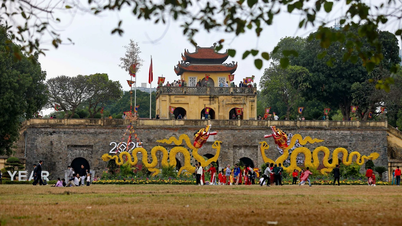

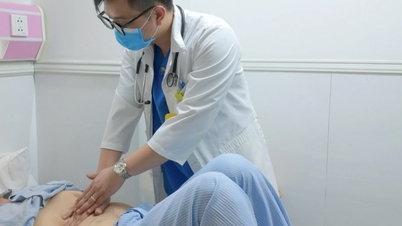






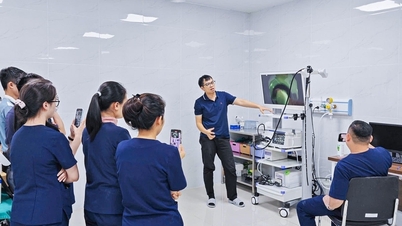







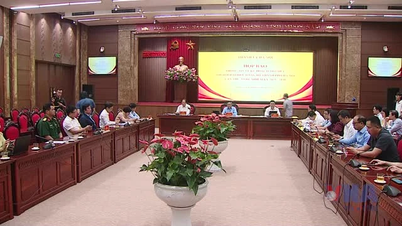
































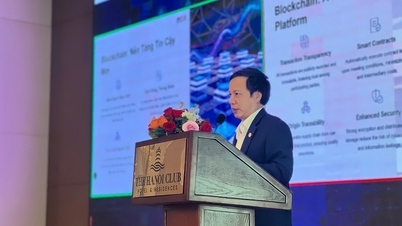
















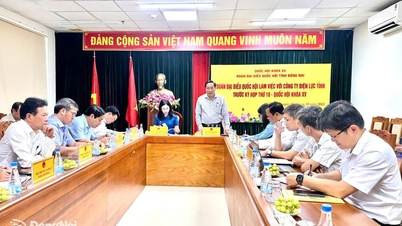



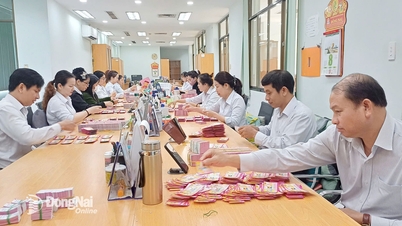
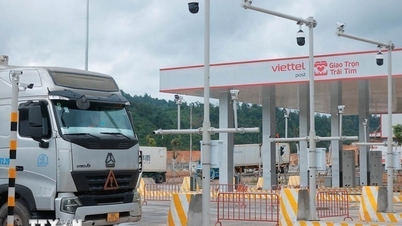
















Comment (0)